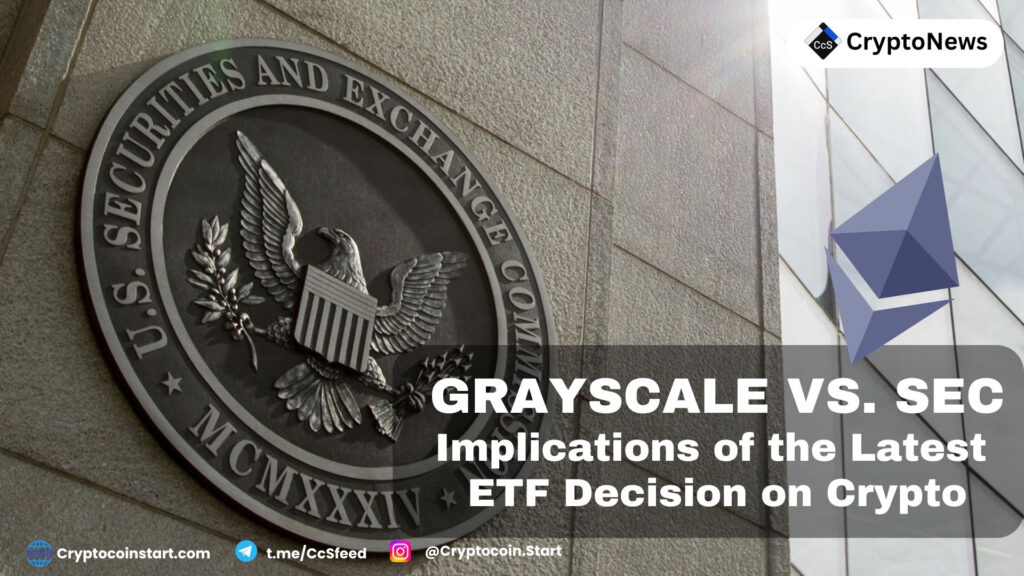
Legal Victory and Its Implications
In August 2023, Grayscale achieved a notable legal win by successfully challenging the SEC’s decision. This victory not only set a precedent for Grayscale but also contributed to the approval of several Bitcoin ETFs in early January 2024. The approval of these ETFs marked a turning point for the cryptocurrency investment landscape and demonstrated a growing acceptance of digital assets in mainstream finance.
Buoyed by this success, Grayscale subsequently converted its Ethereum Trust into an ETF, despite concerns that its ETFs might lead to market instability due to significant outflows. This transition reflects the firm’s commitment to adapting to regulatory changes while expanding its portfolio of investment vehicles.
The Digital Large Cap Fund (GDLC)
The GDLC is at the center of Grayscale’s latest ETF proposal. This fund currently offers investors exposure to a diverse mix of major and lesser-known cryptocurrencies, including:
- Bitcoin (BTC)
- Ethereum (ETH)
- XRP
- Solana (SOL)
Eric Balchunas, a senior ETF analyst, notes that the fund’s structure, which includes a modest percentage of less liquid assets like XRP and Solana—constituting only 4.16% and 1.76% of the fund’s holdings, respectively—might still fit within regulatory frameworks. Balchunas suggests that this unique composition could provide Grayscale with a competitive edge in the race to launch a mixed cryptocurrency ETF.
Challenges Ahead for Grayscale
Despite the optimism surrounding Grayscale’s new ETF proposal, challenges remain. The U.S. market has seen multiple applications for Solana and XRP ETFs, yet these proposals face significant hurdles in gaining SEC approval in the near future. The cautious stance of the SEC towards ETFs that include cryptocurrencies perceived as less liquid or more volatile underscores the complexities of integrating such products into mainstream financial markets.
- Regulatory Concerns: The SEC’s stringent regulations may delay or block applications for ETFs featuring less liquid cryptocurrencies.
- Market Stability: There are fears that significant outflows from ETFs could lead to increased volatility in the underlying assets.
The Growing Trend of Cryptocurrency ETFs
Grayscale’s push to expand its ETF offerings reflects a broader trend among investment firms aiming to provide diverse cryptocurrency exposure to both institutional and retail investors. This strategy not only broadens investor access to digital assets but also highlights the evolving landscape of cryptocurrency regulation and investment vehicles.
As the demand for cryptocurrency investment options continues to grow, firms like Grayscale are at the forefront of creating innovative financial products that cater to this emerging market. The introduction of cryptocurrency ETFs could pave the way for increased institutional participation in the crypto space, further legitimizing digital assets as a viable investment class.
Conclusion: The Future of Cryptocurrency ETFs
Grayscale’s efforts to convert its Digital Large Cap Fund into an ETF signify a pivotal moment in the cryptocurrency landscape. With the firm’s recent legal victories and its strategic focus on expanding its ETF offerings, the stage is set for a potential transformation in how investors engage with digital assets.
While challenges remain, particularly concerning regulatory approval, the growing acceptance of cryptocurrency ETFs could lead to a more stable and mature market. As more investment firms seek to develop innovative products that cater to the evolving needs of investors, the future of cryptocurrency ETFs looks promising.
Ultimately, Grayscale’s initiatives may serve as a catalyst for broader adoption of cryptocurrency investment vehicles, shaping the future of finance and potentially changing the way the world views digital assets.

